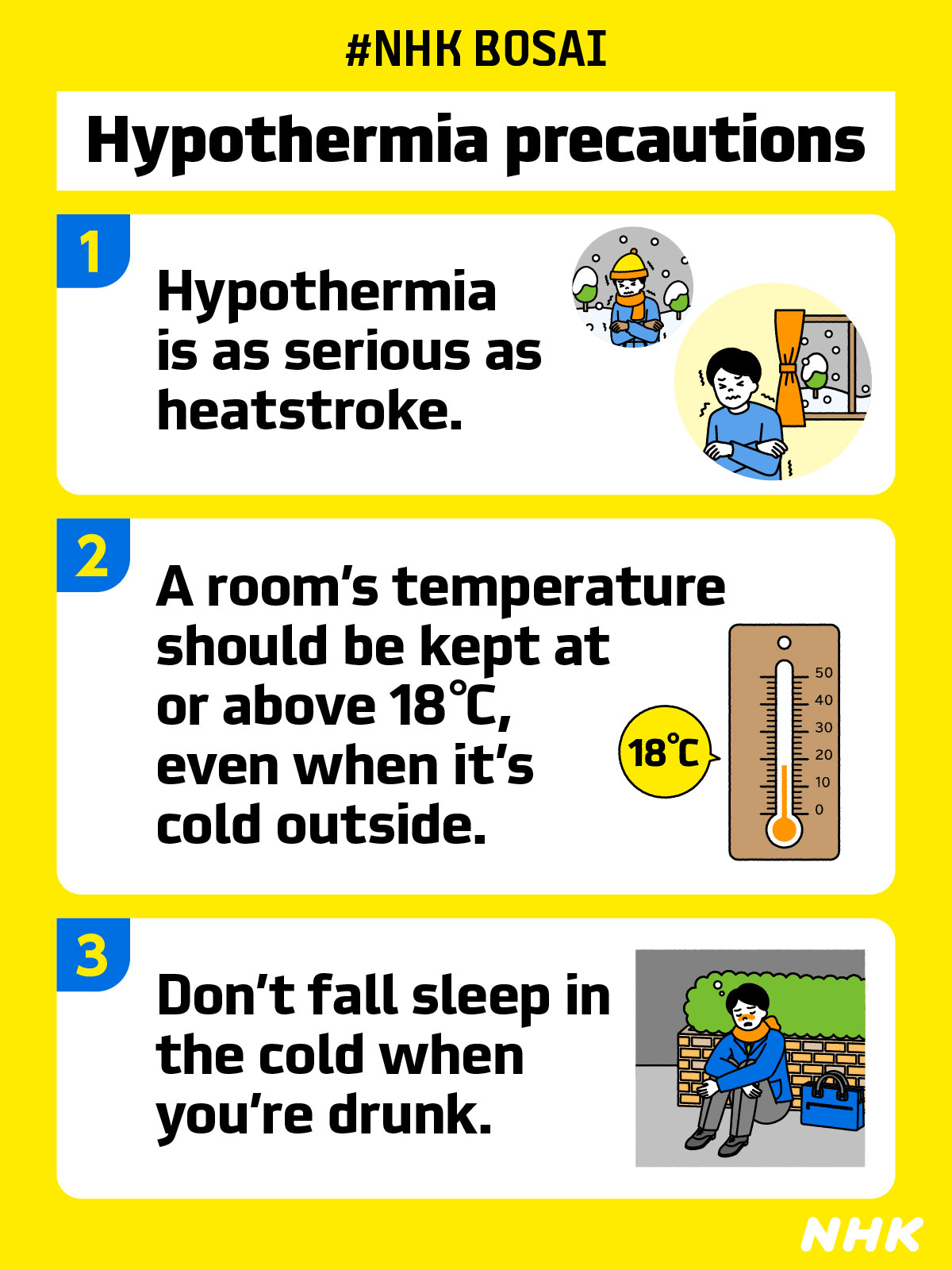
Hypothermia is as serious as heatstroke

Hypothermia is a condition in which the core body temperature drops below 35 degrees Celsius, which can impair the flow of blood to the brain. It can cause strokes, impaired consciousness, or even death.
Data from the Koriyama Fire Department in Fukushima Prefecture shows 377 people with hypothermia were taken to hospitals in the ten years through 2022. About 70 percent of them had developed the condition while indoors, and about 80 percent of them were over the age of 65. In addition, about 80 percent of them were admitted for treatment. This shows the condition is already severe at its onset compared to heatstroke.
More than 1,000 people in Japan die each year from low temperatures, according to the Current Population Survey. In some years, the number of deaths from low temperatures tops heatstroke fatalities.
A room’s temperature should be at least 18 degrees Celsius!

The World Health Organization strongly recommends maintaining indoor temperatures at 18 degrees Celsius or higher to prevent health hazards. A drop below that level can raise blood pressure, trigger arrhythmias and strokes, and increase the risk of developing hypothermia.
Bedrooms are where temperatures tend to drop the most. Before you sleep, pay attention to the following points:
✔ If you feel cold, turn on a heater.
✔ If you’re worried that heat will cause dry air, use a humidifier.
✔ Do not cool your neck.
✔ Warm your bed or futon with a hot water bottle.
(Sleeping with a hot water bottle can cause low-temperature burns. Remove it before going to bed.)
A research team led by Professor Ikaga Toshiharu of Keio University surveyed around 2,100 single-family houses nationwide about living room temperatures in winter. They found that temperatures in 90 percent of the houses were below 18 degrees Celsius. Surprisingly, houses in colder regions such as Hokkaido and Niigata prefectures tended to be warmer indoors. The lowest reading of 13.1 degrees Celsius was recorded in Kagawa Prefecture in Shikoku, western Japan. These results show people must keep their guard up even in warmer areas. You should make it a habit to measure the temperature of your home's living room, bedroom, and other spaces.
Don't go to sleep in a cold place while intoxicated!

When you drink alcohol, your heart rate increases, your blood circulates faster and you can feel as if your body is warmer. But your body easily releases heat in this state. If you sleep outside or in the entranceway of your house, your body temperature can drop rapidly, and you may get hypothermia without realizing it.
Be sure to sober up before bed, and go to sleep in a warm room.
The number of people hospitalized for hypothermia in Japan increases in the second half of December, during the year-end party season. If you see someone who is drunk and unable to move from a cold place, do not leave them alone. Talk to them as much as possible.
